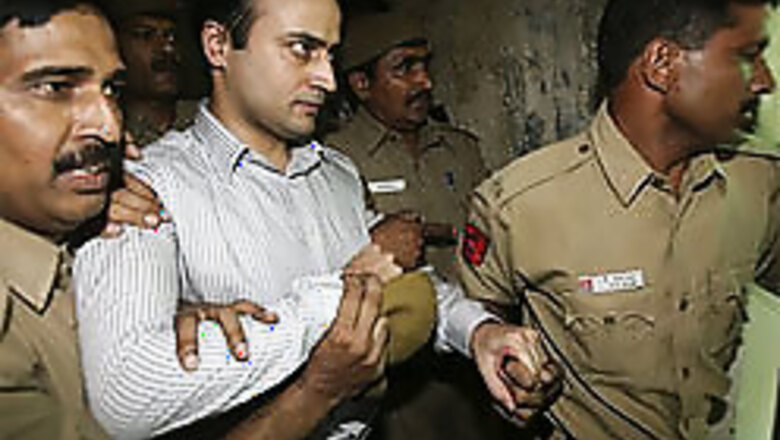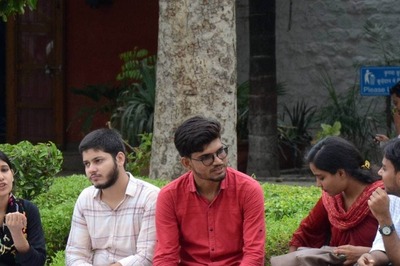
views
New Delhi: The Delhi court which on Tuesday convicted businessman Sanjeev Nanda in the BMW hit-and-run case has said he deserved strict punishment because of "drunken driving".
The court said if "drunken driving" results in the death of a person, it takes the crime out of the purview of section 304A (rash and negligent driving) and it could be covered under the definition of murder.
"If a drunken person drives a vehicle in a highly rash or dangerous manner and thereby kills a human being, this offence goes beyond the purview of Section 304 (1) of IPC and such gross recklessness should fall within the purview of Section 304 (2)," said Additional Sessions Judge Vinod Kumar. Section 304 (2) deals with culpable homicide not amounting to murder.
The maximum imprisonment for the crime under Section 304 (2) of the Indian Penal Code is 10 years. This is a rare case that a court has convicted the accused in a hit and run case under Section 304 (2). In most cases, the conviction is under Section 304 (1), causing death by rash and negligent act, in which the maximum sentence is two years
Nanda was found guilty of crushing six persons, including three policemen with his luxury BMW car on January 10, 1999 in Lodhi Colony of south Delhi. He was allegedly drunk at the time.
The court also convicted three others–businessman Rajeev Gupta and his two employees Bhola Nath and Shyam Singh—for destruction of evidence. Nanda’s friend Manik Kapoor, who was in the vehicle at the time of the accident, was acquitted.
The high-profile case took several twist and turns with witnesses turning hostile and even Nanda's lawyer R K Anand and Special Public Prosecutor I U Khan coming under the scanner after a TV sting operation showed collusion between them.
The trial court relied upon the testimony of controversial eyewitness Sunil Kulkarni, who was shown with the two lawyers in the sting operation. "It must be kept in mind that he (Kulkarni) was facing a public prosecutor (Khan) who was acting in collusion with defence counsel Anand.
"Therefore, a witness was clearly under great mental pressure at the time of recording of his evidence. Hence, the contradictions and improvement on the periphery appearing in his testimony should be seen in that light," the judge said.
The court called Kulkarni a very peculiar personality. He described him as a character straight from the novels of Charles Dickens. "To me Kulkarni's testimony about the car hitting the middle divider while someone was entangled underneath was not even pointed by police, but his point is established if you see the videography of the spot,” said the judge.




















Comments
0 comment